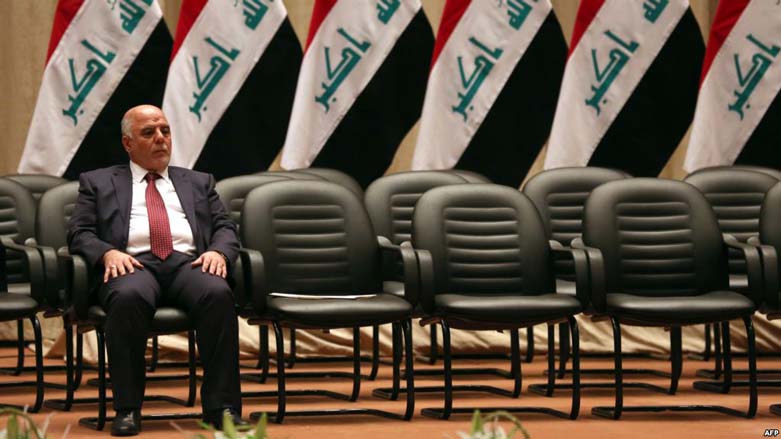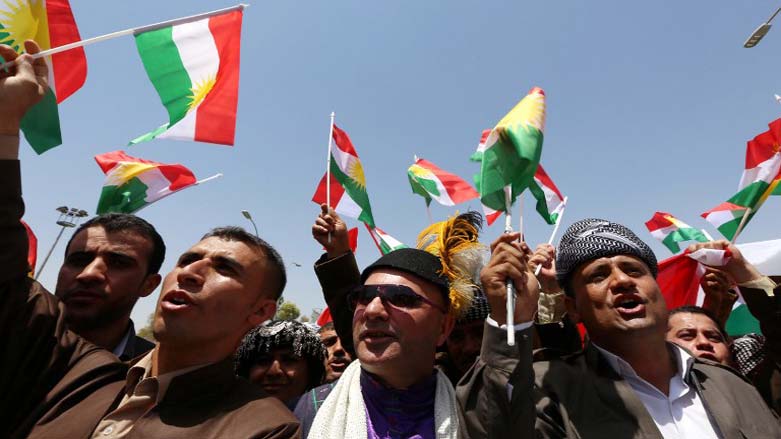Barzani sees no value in Baghdad governmental posts

ERBIL, Kurdistan Region (Kurdistan24) – Kurdistan Region President Masoud Barzani believes that changing ministerial posts in the Iraqi Federal Government has no importance and lacks real partnership, according to the official spokesperson of the Kurdistan Region Presidency (KRP) on Tuesday.
The KRP released a statement rejecting any phone conversation between Barzani and Iraqi Prime Minister Haider al-Abadi on the ministerial post changes in the Iraqi cabinet.
“The last phone conversation between Barzani and Abadi was on March 26, and the topic of discussion had nothing to do with the changes in the Iraqi ministerial posts,” read the statement.
KPR also mentioned that on March 28, the President of Iraq Fuad Masum called Barzani via telephone where Barzani expressed his concerns about the lack of real partnership within the Baghdad government.
The statement emphasized that changing ministerial posts in Baghdad is no longer relevant from Barzani’s perspective, “Because the principle of real partnership in the Iraqi [Federal] Government has been violated and no longer valuable. What is the value of a ministerial post when there is no genuine partnership?”
On Monday, Kurdistan Democratic Party (KDP), Kurdistan Patriotic Union (PUK), Kurdistan Islamic Union (KIU) and Kurdistan Islamic Group (KIG) held a meeting in the city of Sulaimani. They discussed the current developments in Iraq and the formation of a new "technocrat cabinet" by Abadi.
The four parties released a statement at the end of the meeting agreeing that “Iraq is going through a dangerous phase.”
The report added, “There have been attempts to hide the tensions in Iraq and to end the coexistence in the country under the pretext of the formation of a technocrat cabinet. This is an effort to marginalize people of Kurdistan, Turkmens and other ethnic groups in Iraq.”
Reporting by Mewan Dolamari
Editing by Karzan Sulaivany and Ava Homa

